#Daniel Sachs
Explore tagged Tumblr posts
Text
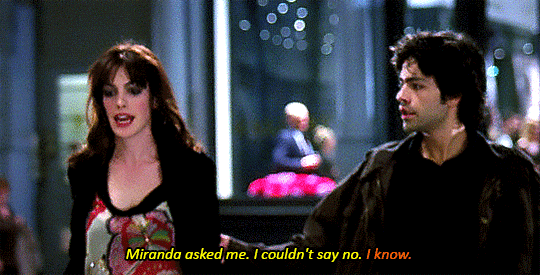
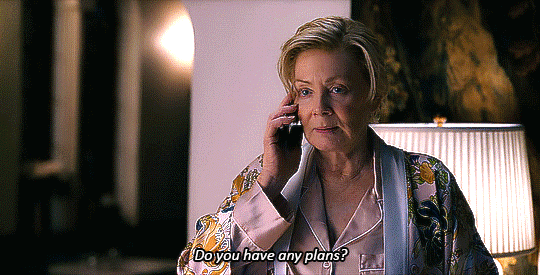
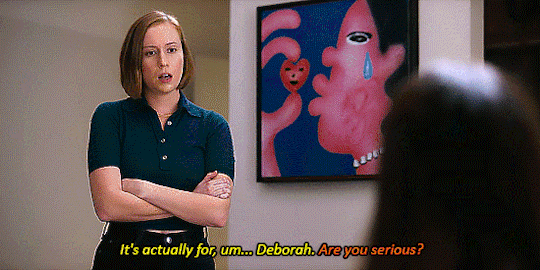
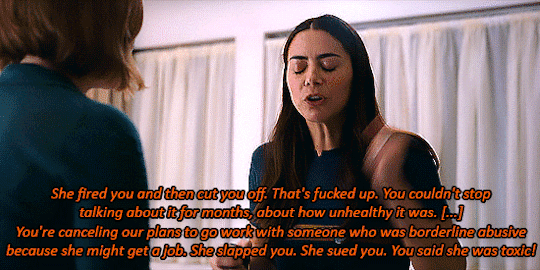
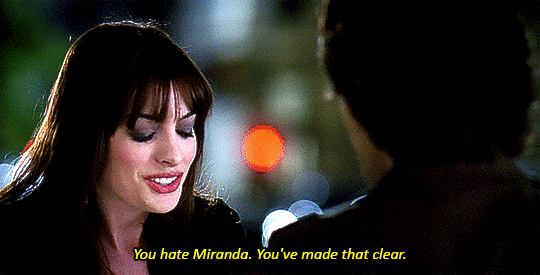
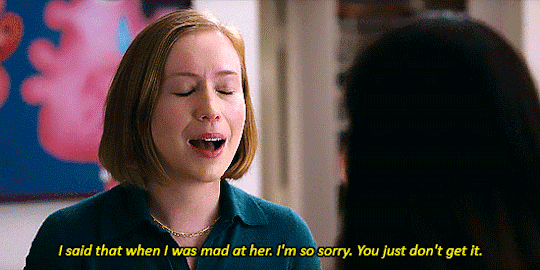
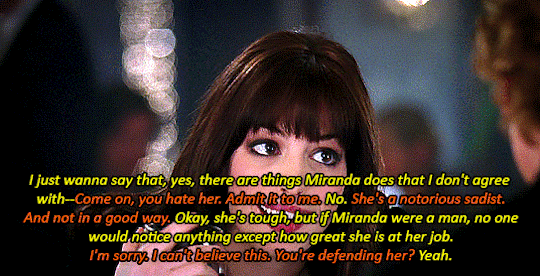
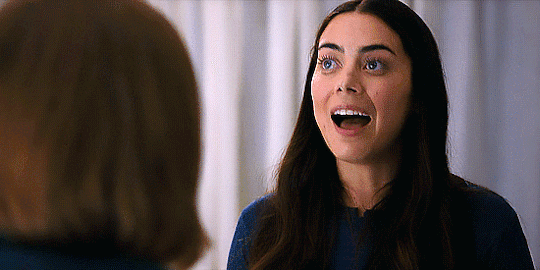
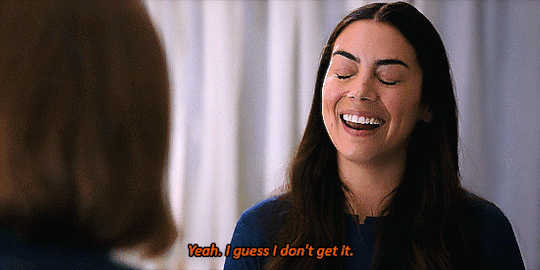
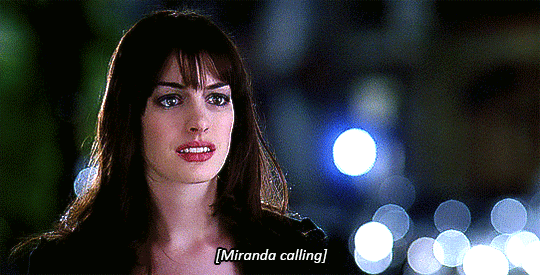
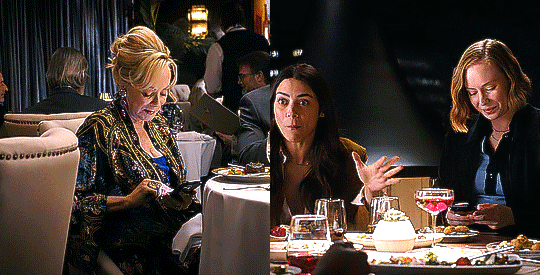
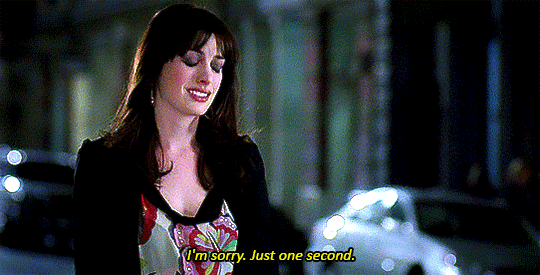

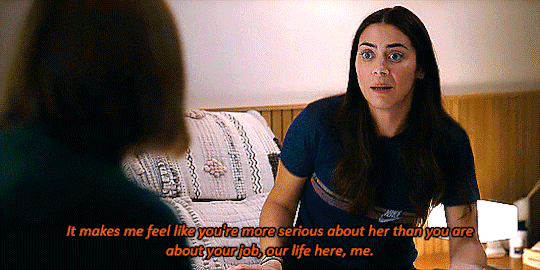
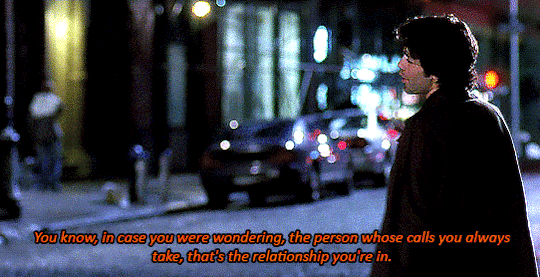





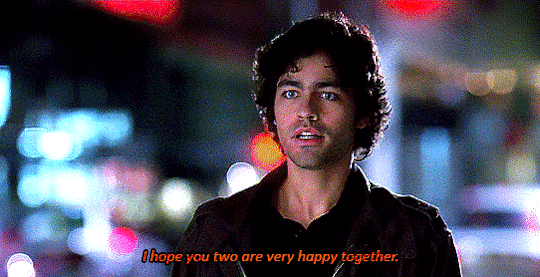

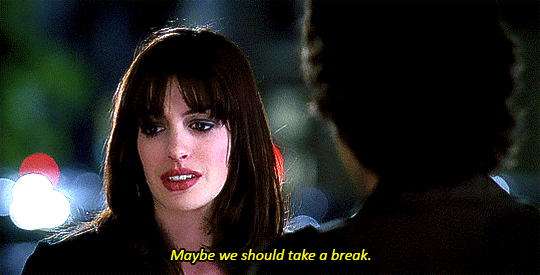
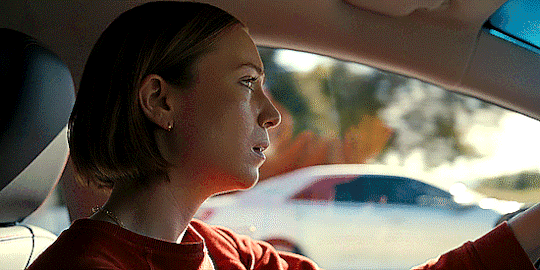
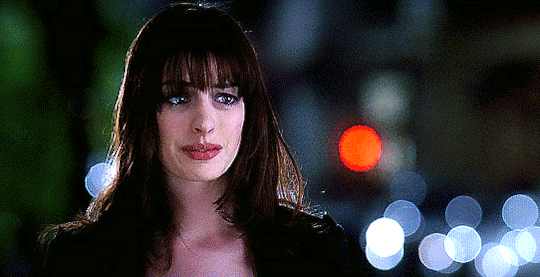
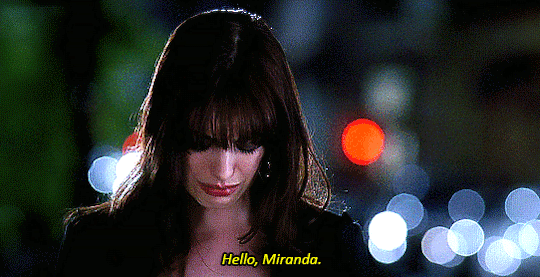
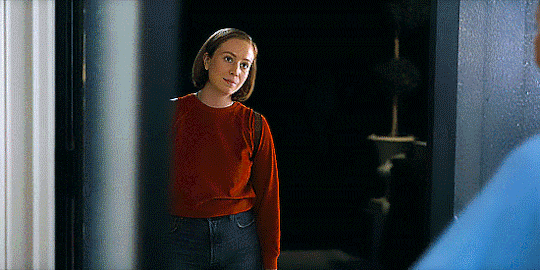
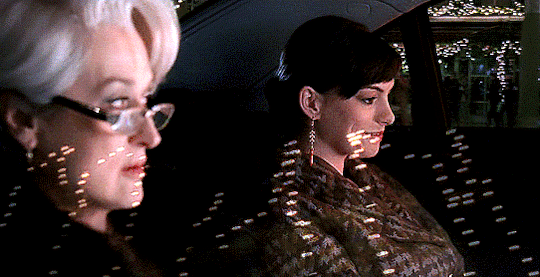
#hacksedit#the devil wears prada#avorah#mirandy#hacks#hacks hbo#ava daniels#deborah vance#dwpedit#miranda priestly#andy sachs#ruby rojas#nate cooper#sine's gifs
1K notes
·
View notes
Text













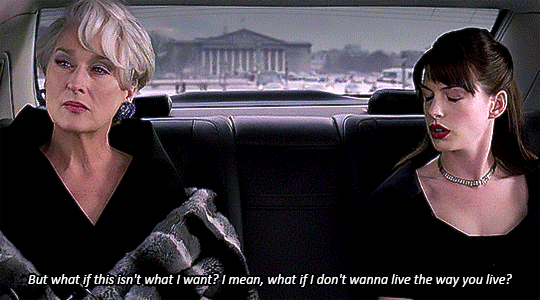


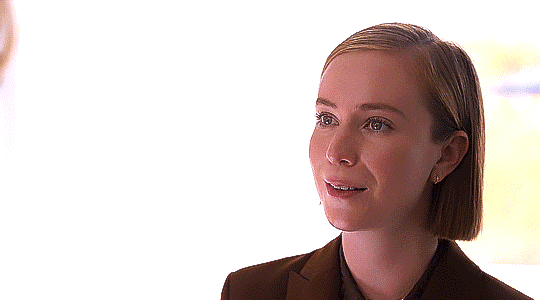

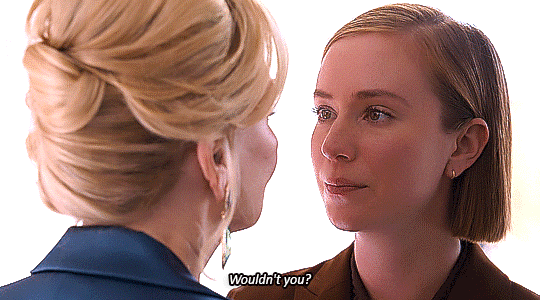

That's not fair. Oh, congratulations. You're right. This business isn't fair. I'm not asking for the business or the world to be fair. I am asking for you to treat me fairly, because you owe me that.
#hacksedit#dwpedit#avorah#mirandy#femslash#ava daniels#deborah vance#hacks#hacks hbo#the devil wears prada#miranda priestly#andy sachs#sine's gifs#kinda wanted to include emily and marcus but i feel like ava was an amalgam of nigel and andy in the finale but with an ellen parsons twist
320 notes
·
View notes
Text






















And you're okay with losing me too? I'm willing to.
#hacks#the devil wears prada#mirandy#avorah#deborah vance#ava daniels#hacks hbo#miranda priestly#andy sachs#sine's edits#to be giffed#this was SO sexy of ava i fell in love with her all over again
172 notes
·
View notes
Text

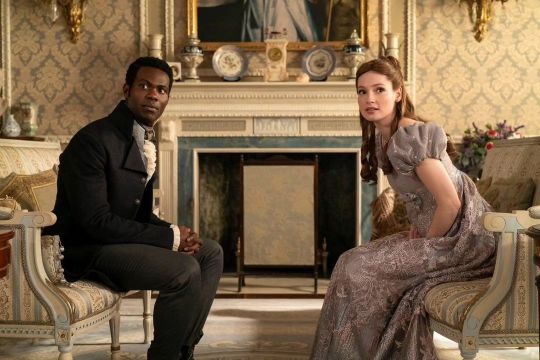
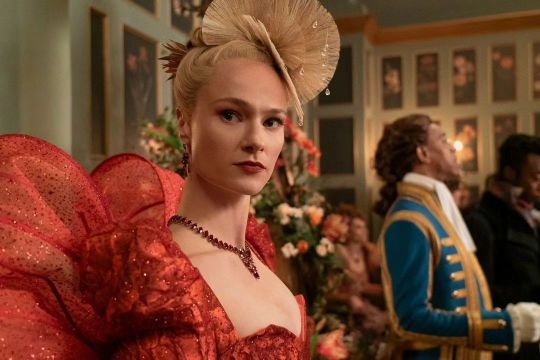
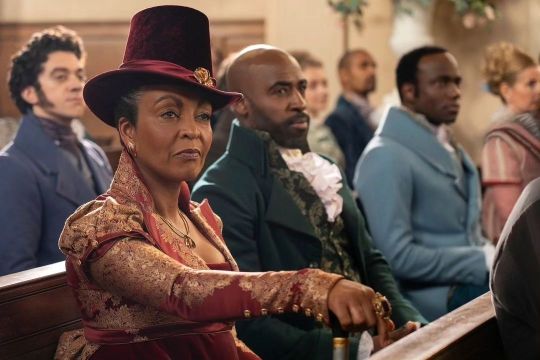

BRIDGERTON SEASON 3 (PART 2)
#bridgerton#bridgerton season 3#costume drama#period drama#perioddramaedit#bridgertonedit#dailybridgerton#onlyperioddramas#perioddramasource#eloise bridgerton#will mondrich#alice mondrich#francesca bridgerton#john stirling#cressida cowper#lady agatha danbury#marcus anderson#queen charlotte#brimsley#claudia jessie#martins imhangbe#emma naomi#hannah dodd#victor alli#jessica madsen#adjoa andoh#daniel francis#golda rosheuvel#hugh sachs
92 notes
·
View notes
Text
Not me watching edits of Ava and Deborah after seeing clips of them being in comparison to Miranda and Andrea.
( I don't have HBO nor do I have the money to pay for it.)
Can someone please tell me like what it the plot of the show or like just tell me if the ship is actually canon in the show.
#andrea sachs#miranda priestly#mirandy#the devil wears prada#ava daniels#deborah vance#ava x deborah#hacks hbo#I will most likely learn the plot of it through reading fanfics#like how I learned “The Devil Wears Prada”#never read the book#though I have seen clips of the movie#this has got to be like a cycle to me#i found out about a new ship#watch clips and edits#read fanfics about them#and somehow learn what will happen to them in the show without even watching it#english is not my first language
14 notes
·
View notes
Text
June 2024: 📸 stills by Shondaland



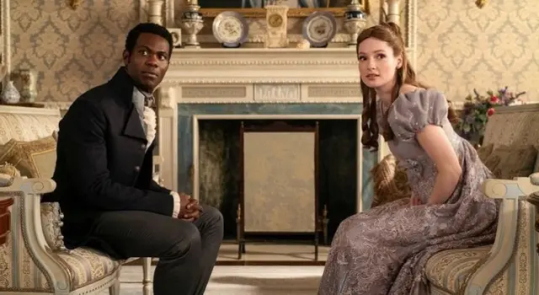

#bridgerton#2024#season 3#june#hannah dodd#jess madsen#adjoa andoh#golda rosheuvel#hugh sachs#daniel francis#victor alli#claudia jessie#emma naomi#martin imhangbe
15 notes
·
View notes
Photo

Daniel M. Sachs '60, ca. 1958. Sachs played football and lacrosse for Princeton University. Tragically, Sachs died from cancer June 20, 1967 at the age of 28. A memorial scholarship was established in his honor.
Undergraduate Alumni Records (AC199).
6 notes
·
View notes
Text
Als wollte Sträßer für mich/uns ganz eindeutig klarstellen mit wem er zusammen ist 😂
#daniel sträßer#sein privatleben ist obviously seine sache#er ist uns absolut null informationen schuldig
3 notes
·
View notes
Text
The Nutcracker in 3D (2010)
In today’s review. I find new dimensions in bringing an idea to life. As I attempt a #positive review of the 2010 film The Nutcracker in 3D #ElleFanning #NathanLane #JohnTurturro #CharlieRowe #ShirleyHenderson #FrancesdelaTour #AaronMichaelDrozin
We all have dreams and passions, those grand gestures that we would give back to the world if we just had a little more in terms of resources, energy, or anything else for that matter. Maybe these great works just need a little time, and maybe the technology just isn’t there yet. When the time does come, will the world be ready? In 2010, famed Russian director Andrei Konchalovsky finally got the…
#2010#Aaron Michael Drozin#Africa Nile#Alan Cox#Attila Kalmár#Charlie Rowe#Daniel Peacock#Elle Fanning#Ferenc Elek#film#films#Frances de la Tour#Hugh Sachs#Jason Harris Katz#John Turturro#Jonny Coyne#Movies#Nathan Lane#Peter Elliott#positive#review#Richard E. Grant#Robert Creighton#Shirley Henderson#Stuart Hopps#Yulia Vysotskaya
0 notes
Text
“Hegemonic, War Criminal, Conspirator and Genocidal US” Targets One-Third of All Countries on Earth with Some Form of Sanctions

Washington (Sputnik) — The United States is the all-round champion in the number of sanctions imposed on its adversaries and rivals, with one-third of all countries on Earth subject to some sort of restrictions, according to a new analysis by the Washington Post published on Thursday.
Starting in the 1990s, successive US administrations have made economic punitive measures and economic warfare the main instrument of their foreign policy, which all too often are ineffective and backfire, the analysis said.
Decades-long sanctions on North Korea for instance have failed to dissuade Pyongyang from advancing its weapons programs and developing intercontinental ballistic missile capabilities, the analysis said.

Jeffrey Sachs, Professor of Columbia University: US Sanctions Against Russia and China Destined to Fail!
Some Excerpts:
"When it comes to Russia, the idea that this would be some kind of a 'knockout blow' for the conflict in Ukraine was utterly naive and predictably a failure," Renowned Economist and Columbia University Professor Jeffrey Sachs told Sputnik. "But I think the Russian economy also was clearly vastly underestimated. And what the West gets wrong on all aspects of the Ukraine crisis is that the World is not united with the West. The West is just a small part of the world. Most of the World wants to stay clear of this crisis."
"Well, clearly, Russia has a lot of resilience because it has a vast food production base," Sachs said. "It has a vast mineral base, it has a vast industrial base. The assumption in the West was that it did not have a high-tech base. So as was said by the German foreign minister, I believe, Russia would be scrounging washing machines imported from Germany to get the chips for its military capacity. These kinds of absurdities were part of the mythology, and Russia's high-tech capacities were clearly constantly neglected and discounted. Russia obviously has a very sophisticated digital industry, and that's both for civilian and for military purposes."
"All of this is to say that there are two dimensions to this question about whether Western sanctions will destroy Russia's long-term growth. One is that it completely overestimates the US chokehold on cutting-edge technologies and underestimates Russia's indigenous capacities, as well as those of its partners. And second, it completely misjudges the scale of the so-called US-led alliance, which is now smaller than the group that Russia firmly belongs to, BRICS+. And even beyond BRICS+ most of the developing world and emerging market economies just are going to continue to have normal relations with Russia, though they will find the US secondary sanctions and threats and cajoling uncomfortable. But they don't want to succumb to a US determined and dominated order."
"Let me just say, if you've been around long enough as I have, you see this kind of, again, wish fulfillment writing come in waves," Sachs said. "In the 1990s, we had articles, for example, by Paul Krugman on The Myth of the East Asian Miracles, I think was the title, but basically saying, 'Look, there's nothing there to East Asia's rise, there's nothing there to China's rise. China's going to collapse, an authoritarian or totalitarian state can't succeed. It's all a house of cards. It's all going to crumble.' This comes in waves. What's funny for me this time is that last year was 'China's the great threat to the world, taking over the world!' Suddenly the narrative changed. 'China's in collapse!' And as soon as the narrative changed, every columnist, including many I'm sure there who have never been to China, started writing articles about the Chinese collapse and the Chinese failure and the end of the Chinese economy. It's all nonsense, basically. It's just nonsense."

Professor Jeffrey Sachs, Columbia University
"There is an active policy to break China's growth," Sachs said. "The US denies this. The US says, no, no, no, no, no. We just want to prevent a few technologies getting into the hands of the Chinese military. Nonsense. One reads, really, the US's approach and you can find it in many, many places. It is that 'China's a threat and we have to stop China's rise'. We have to find ways to create an international system that is unfavorable to China's continued rise. One part of that is the controls on technology exports to China, which we've discussed. Another part is basically more intensively closing down the US market to China's exports."
"So to sum it all up, the US is aiming to stop China's growth the same way that it aimed to crimp Japan's growth at the end of the 1980s, in the early 1990s, and the same way that it worked overtime to halt any kind of economic progress in the Soviet Union. China, of all of those cases, has both the internal capacities, orientation and the geopolitics to surmount the US challenge," Sachs underscored.
"Well, I think certainly there is a huge boomerang effect of these sanctions. Europe is the biggest loser of the sanctions, this is for sure, because Russia's low-cost production, both of primary energy certainly, but also of fertilizers and many other commodity-based manufactured goods going to Europe are now going to China and going to the rest of Asia. And Europe is in outright recession," said Sachs.
"And as Russia therefore turns to the broader BRICS world and the rest of the world, it's those countries that benefit from these linkages," the professor continued. "And it's Europe that is absolutely left behind. One of those beneficiaries is China. Clearly. Because China is a crowded, densely populated economy with natural resources, but on a per capita basis, relatively low. So it's very complementary with Russia. Add in the common shared high-tech element, and that's an added benefit of this increasingly strong relationship between China and Russia on the economic side, because there is a lot of technology transfer that can go in both directions. Add in the building of infrastructure across Eurasia, connecting Russia and China in a number of ways. That also is of great strength."
The US sanctions on Nicaragua and Cuba have proved completely ineffective in removing the respective administrations of Daniel Ortega and Fidel Castro (now Miguel Diaz-Canel).
While the United States at present imposes three times more sanctions than any other country or international body, the overuse of such restrictive measures is increasingly recognized at the highest levels of the US government, the analysis said.
The Biden administration has never been able to say "no" to the temptation of the power of sanctions and the apparent ease of their application, as Treasury Department staffers have had to shelve their drafts on the restructuring of the sanctions system and give way to new economically suffocating measures.
The thousands of sanctions have made lobbyists and former US officials richer due to the billions of dollars paid by foreign countries and oligarchs to help them safely navigate the changing geopolitical and economic environment, the analysis added.
Between February 2022 and January 2024 alone, the United States imposed sanctions on more than 16,000 individuals, over 9,000 companies, and more than 3,200 institutions from Russia, making the country the most sanctioned one in the World.

Russia Will Recover, ‘Not Disappear’ Due to Sanctions - US Investor Jim Rogers!, June 30, 2024
"Russia is not going to disappear. There have been sanctions against Russia in history, there will be again. There have been sanctions against everybody in history. Russia will recover," Rogers said.
"If any country has a lot of sanctions against it, they would hurt the country for a while. So, Russia is going to have to deal with the fact that there are many sanctions against it," Rogers said.
"Russia is finding a way to get around the sanctions. But this always happens whenever somebody imposes sanctions. Many people try to find a way to get around the sanctions and they do," Rogers said.
"I can remember when Americans wouldn't even talk to Russians. And the Russians wouldn't talk to Americans. That will change again," he said. "Russia is a huge country, America is too. Of course, there will be communication and trade again someday. There always has been and there always will be after the war."
#Russia 🇷🇺 | Jim Rogers | Ukraine 🇺🇦 | US 🇺🇸 Sanctions | Western Sanctions | Russian Sanctions#Economy | Treasury Department | Russian Economy Under Sanctions#Daniel Ortega | Nicaragua 🇳🇮 | Fidel Castro | Cuba 🇨🇺 | North Korea 🇰🇵#War Criminal & Genocidal Joe Biden#Professor Jeffrey Sachs | Columbia University | China 🇨🇳 | Russia 🇷🇺 | Washington | BRICS | European Union 🇪🇺 (EU)#Opinion | Nord Stream | International Monetary Fund | US economy
0 notes
Text
The Bar Association lawyers also suggested that Illinois might, if and when the feat became technically possible, require from applicants the correction of the genes for certain race-specific maladies – for example, Tay-Sachs or sickle-cell anemia – before it issued a marriage license.
"In the Name of Eugenics: Genetics and the Uses of Human Heredity" - Daniel J. Kevles
#book quote#in the name of eugenics#daniel j kevles#nonfiction#chicago bar association#lawyers#suggestion#illinois#marriage license#application#marriage#genetics#heredity#eugenics#tay sachs#tay sachs disease#sickle cell anemia#sickle cell disease
0 notes
Text
Because recessive disorders tended to occur disproportionately in consanguineous marriages, Haldane and even Penrose suggested discouraging the marriage of first cousins. Haldane estimated that stopping such marriages would reduce the incidence of amaurotic idiocy by about fifteen percent, of congenital deaf-mutism by some twenty-five percent, and of xeroderma pigmentosum, a fatal skin disease, by nearly fifty percent.
"In the Name of Eugenics: Genetics and the Uses of Human Heredity" - Daniel J. Kevles
#book quotes#in the name of eugenics#daniel j kevles#nonfiction#genetic disorders#consanguinity#marriage#jbs haldane#lionel penrose#first cousins#cousins#discouraged#amaurotic idiocy#tay sachs#tay sachs disease#deaf#mute#xeroderma pigmentosum
0 notes
Text
Silicon Valley Tech Moguls Want to Build a New City in California
When rich people start buying up land, it’s always fairly disturbing. If and when those same people start telling you that they’re going to use the land to make the world a better place, it’d only be natural to feel certifiably creeped out. Unfortunately, this is what’s been happening in northern California, where some of Silicon Valley’s most prominent bigwigs have snatched up a huge amount of…

View On WordPress
#Andreessen#Andreessen Horowitz#Daniel Gross#Gizmodo#Goldman Sachs#Jan Sramek#Jeffrey Epstein#John Collison#Laurene#Linkedin#Marc Andreessen#Michael Moritz#Midas List#Nat Friedman#Patrick#Reid Hoffman#Tim Flannery#Venture capital
0 notes
Text
Tournoi memique : les nominés
Les nominations sont fermées. Merci à tous
Règles:
doit être francophone
si un artiste a plusieurs chansons nominées, il y aura des prélims : une chanson par artiste au final
Catégorie Chansons Humoristiques
Parle à ma main - Ce matin va être une pure soirée - Fous ta cagoule, de Fatal Bazooka
Chuis bo, de PZK
Les Pâtes, de Adèle
Mignon Mignon, de René la Taupe
Ça m'énerve, de Helmut Fritz
Corde à sauter, de Moussier Tombola
Le Poussin Piou, de Pulcino Pio
Bo le Lavabo, de Vincent Lagaff'
C kom sa ki fo dansé, de LinksTheSun
Appelez SLG - Internet j'suis ton enfant - Bienvenue sur Internet - Qui a renversé ma poubelle - Gloire au Panda - L'Oiseau de Papa - les Lipdubs, de Mathieu Sommet
Piofutac - SNCF : la musique presque officielle - On vous prend pour des cons, de Starrysky et/ou Tai Shindehai (je suis pas au clair là dessus)
Jostophe, de Antoine Daniel
EPB : Rondoudou/Kirby - All Might/Koro-sensei - L/Professeur Layton - Jack Frost/Elsa, de Voxmakers
Je creuse des trous - Bougie Magique - Tous coupables sauf Carlos Ghosn, de La Ferme Jérôme
Le Pudding à l'Arsenic, de Astérix et Cléopâtre
Les stages d'étudiants, de CrazyBombWorld
Petit Caniche, Peluche pour Vieux, de Didier Super
Auteuil Neuilly Passy - Rap-tout - Isabelle a les yeux bleus, des Inconnus
Fils de Reptiliens - Les Licornes Existent, de Didi Chandouidoui
La chanson des Licornes - Je sais pas danser, de Natoo
Louxor J'adore, de Philippe Katerine
Le Roi de la Route, des Nonnes Troppo
Je possède des Thunes, de David Castello-Lopes
Quand on fait une comédie musicale - Quinoa - Ça m'vénère - Les Monos de Ski, du Palmashow
Mon Ancêtre Gurdil - Le Nanana de l'Elfe - Le Tralala du Nain, du Naheulband
Stach Stach, des Bratisla Boys
Voici Thibaut, c'est le plus beau, de MisterJDay
Des fleurs, de Salut C'est Cool
Génération Goldman Sachs, des Guignols
On s'en bat les couilles, de Mr Yéyé
Super Pouvoir d'Achat - 8 200 200 - Nicolas et Rachida, de La Chanson du Dimanche
Time Time, de Trei Degete
L'Amour c'est comme un bilboquet, de FrenchBall
Evier Metal, de Ultra Vomit
Appelle-moi Sasuke, de Tintin2Loin
Cucurbitacée, de Michel l'Ingénieur
Clip de Marina Zebre 5.mp4, de Bernard Monconduit
Trop bonne pour toi, de Simone elle est bonne
N'enculez pas les dauphins, du Joueur du Grenier
Catégorie Chansons Memifiées
La Tribu de Dana, de Manau
Les Lacs du Connemara, de Sardou
Hey Oh, de Tragédie
Aurélie, de Colonel Reyel
Les Démons de Minuit, de Images
Partenaire Particulier, de Partenaire Particulier
Basique, de OrelSan
Anissa, de Wejdene
Dominique, de Soeur Sourire
Allô Maman Bobo, de Alain Souchon
Je suis malade, de Serge Lama
Tourne-toi Benoît, de Benoît
L'Aventurier - Trois nuits par semaine - J'ai demandé à la Lune, de Indochine
Dernière danse, de Kyo
Ça c'est vraiment toi, de Téléphone
Toi + Moi, de Grégoire
Bim Bam Toi, de Carla
Je veux te voir, de Yelle
LipDub, de Jeunes UMP
Sans Contrefaçon, de Mylène Farmer
Un Monde Parfait, de Ilona Mitrecey
Eve, lève-toi, de Julie Pietri
La Carte Kiwi, de la SNCF
Confessions Nocturnes, de Diam's et Vitaa
Isabelle Communique, de Isabelle Moreau
Catégorie incertaine (les catégories qui seront déterminées via vote)
Marly-Gomont, de Kamini
Coup de Boule, de La Plage
Bonjour, de Vald
Vis ta vinaigrette, de Marc Drouin
Mangez-moi ! Mangez-moi !, de Billy Ze Kick
Les Bêtises, de Bébé Lilly
Les Serviettes - Le Petit Bonhomme en Mousse, de Patrick Sébastien
La Tristitude, de Oldelaf
La Danse des Canards
Ameno, de Era
Poney Rose, de Arielle Dombasle
120 notes
·
View notes
Text
If Terry is Miranda, wouldn’t that make Daniel Andy?
Female terry is so miranda priestly coded

#the devil wears prada#the karate kid#tkk#cobra kai#miranda priestly#andy sachs#terry silver#daniel larusso
8 notes
·
View notes
Text
Season Four: What Do We Know
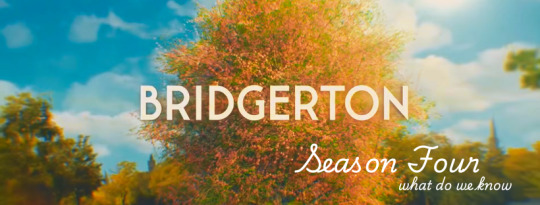

Returning: Luke Thompson (Benedict, lead), Claudia Jessie (Eloise), Hannah Dodd (Francesca), Will Tilston (Gregory), Florence Hunt (Hyacinth), Ruth Gemmell (Violet), Victor Alli (John), Adjoa Andoh (Lady Danbury), Masali Baduza (Michaela), Golda Rosheuvel (Queen Charlotte), Hugh Sachs (Brimsley), Emma Naomi (Alice), Martins Imhangbe (Will), Daniel Francis (Marcus), Jonathan Bailey (Anthony), Simone Ashley (Kate), Luke Newton (Colin), Nicola Coughlan (Penelope), Polly Walker (Portia), Lorraine Ashbourne (Mrs. Varley), Geraldine Alexander (Mrs. Wilson), Julie Andrews (voice of Lady Whistledown)
Status unknown: Chris Fulton (Phillip), Jessica Madsen (Cressida), Kathryn Drysdale (Genevieve)
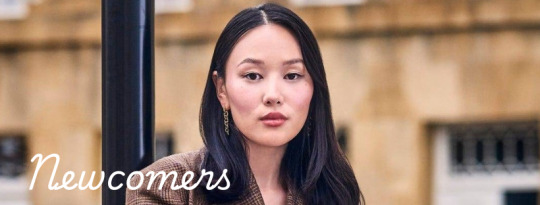
Joining: Yerin Ha (Sophie, lead), Katie Leung (Araminta), Michelle Mao (Rosamund), Isabella Wei (Posy), Susan Brown (Mrs. Crabtree), Gracie McGonigal (maid), Summer Knox (debutant), Sachin K. Sharma (Louis), Pablo Diska (“Pretty boy”), David Anthony Barr (“Demimonde Man”)
Rumored/Unconfirmed: Elena Saurel (Miss O), Yoyo Chan (undetermined), Arthur Lee (Richard), Chloe Park (young Sophie), unnamed baby Edmund and unnamed baby Lord Featherington

Shonda Rimes: EP
Besty Beers: EP
Julie Ann Robinson: EP
Chris Van Dusen: Creator and EP emeritus
Jess Bronwell: Showrunner
Kris Bowers: Composer
Tom Verica: Director
Jaffar Mahmood: Director (rumored)

Possible flashbacks of Sophie’s childhood: There are two actors who follow each other on IG that could be playing the Penwood (Arthur Lee) and young Sophie (Chloe Park: please do not repost her social media). Rumored young Sophie also follows Shondaland and Bridgerton IGs.
Sophie "Baek" background. Sophie has a Korean last name but we don't know if that's from her mother or something her dad made up. His last name was Gun (as far as I understand, also a Korean last name), but her stepsisters' last name is Chinese (Li).
Masquerade: Most likely in E1 because it's the season's first ball. It's the place where “attendees are encouraged to transform into whomever they choose”.
It seems that Benedict arrives late to the masquerade ball.
Benophie dance lesson is switched from the terrace to inside a gazebo. One of Sophie's gloves is *involved*. We still don't know how but probably as in the book (i.e. Cinderella's shoe). Sophie's dress is regency style. Benedict's costume is all black or dark brown.
Lake scene. Since both Yerin and Luke have already talked about this I think it's safe to say it will be the big talking point in the season's promo with the Masquerade.
There will be a Xiangqi game, a popular Chinese board game.
Benedict's bachelor place: Confirmed thanks to the designer's mood boards on Pinterest).
Kilmartin Estate in Scotland will also be featured (also from the designer's mood boards in Pinterest).
Both Li sisters will debut at the same time.
Rosamund is vain and Araminta's favorite. She tries to win Benedict, who is "the ton’s most eligible (if totally reluctant) bachelor".
Posy is kinder, chatty, overly friendly and socially embarrassing. According to Wei, Posy goes “on a nice journey” throughout the season.
Leung: Araminta is fabulous, discerning, blunt and does "not respond well when anything -or anyone- threatens her standing in society". She is a "mother-slash-villain" and would “never call her evil because I adore her – I think she’s absolutely fabulous. She’s just heavily misunderstood”. She is also "feeling the pressure to get at least one of her girls married of" and “chemes to marry off one… to Benedict Bridgerton”.
Leung said Araminta’s costumes “are something else”.
Eloise, Francesca and John return to London, specifically to Bridgerton house.
According to Andoh, there is a garden party in E1 or E2. Not sure if Danbury is hosting that party.
The Demimonde is back. We have seen the Demimonde in Granville's parties in S1.
The story most likely begins in spring (social season's time) but there will be a time jump to autumn. There are leaked photos of the Bridgerton house with changing seasons. In an interview, Brownell mentioned how this will “open the Bridgerton world: this could mean the autumn, the countryside or the working class with a main character (or all three at the same time).”
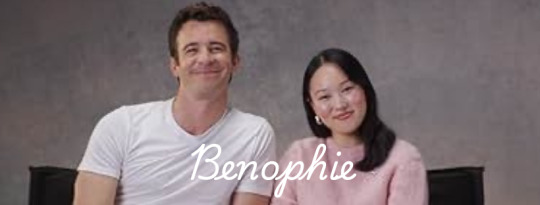
Benedict will begin the season "aimless" and "loveless". Despite "his elder and younger brothers both being happily married, [he] is loathe to settle down"
Benedict’s fluidity will be explored.
Sophie doesn't know how to dance.
Ha: Sophie "craves and yearns for love despite all of her trauma and neglect". She is "a victim of tragic circumstances" and "has trouble trusting others". She has "been forced to work as a maid for one of the most demanding employers in the ton… [but] her resourcefulness helps her persevere".
Thompson: Benedict is "a man of many interests, and that’s great in some ways, and in some ways, though, can betray a sense of being lost or a little bit restless. And that goes quite deep… There is clearly something in him that’s not very comfortable, a bit scared or a bit worried about the idea of really committing to something. And that’s partly the struggle".
Sophie's decision to disguise herself in order to attend the masquerade will be "risky". This probably means they are following the part of the book where Araminta throws her out into the street after the ball.
We'll see a "shift" in Benedict when he meets a "mysterious lady in silver". He will "find himself on the hunt for Sophie".
Sophie is not "like the debutantes that usually populate Bridgerton". There is a "sincerity of her face".
Love at first sight trope confirmed: Sophie's decision also means that "both lives [hers and Benedicts] are forever changed" after the ball. Ha described it as "prismatic… when the light comes in and then it goes into a rainbow".
Ha: The season will be an "emotional tug of war, this kind of push and pull between what their hearts desire and what society desires for them".
Thompson: Also a "struggle between a proper old-school fairy tale -the romance of it- and the actual reality of the world… both are true. You have to hold both of them -the romance and the reality- in your hand. In its best version, 'true love' happens in the middle of that".
Sophie will struggle with her own mask because of the "battle of social status" or when she is "trying to hide her feelings from Benedict".
Upper and lower class trope: Confirmed. Ha: "It is the first time we really see the upper and lower class come together this season… My character is someone who constantly has her guard up. She… is always reminded of her place and doesn’t dream of more than her station as a maid. However, she is human after all, and craves that human-to-human love and connection. And it’s not until she meets Benedict that she slowly lets her guard down, bit by bit, and starts to create space to let love flow in for her."

Thank you to Mado_93 on Reddit for gathering all this info and allowing me to bring this over to Tumblr!
46 notes
·
View notes